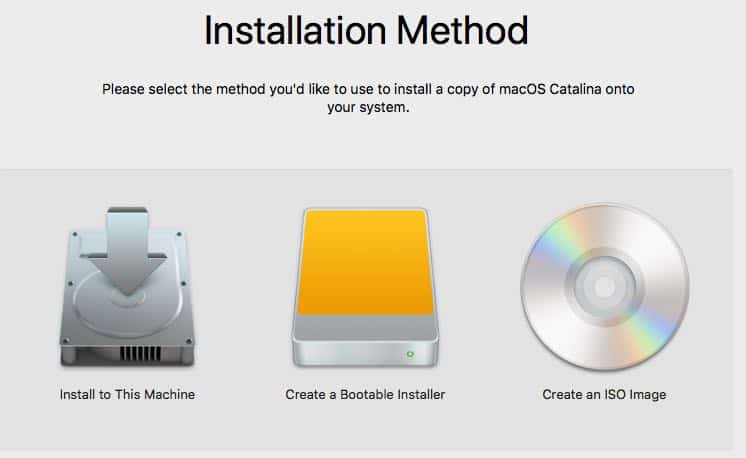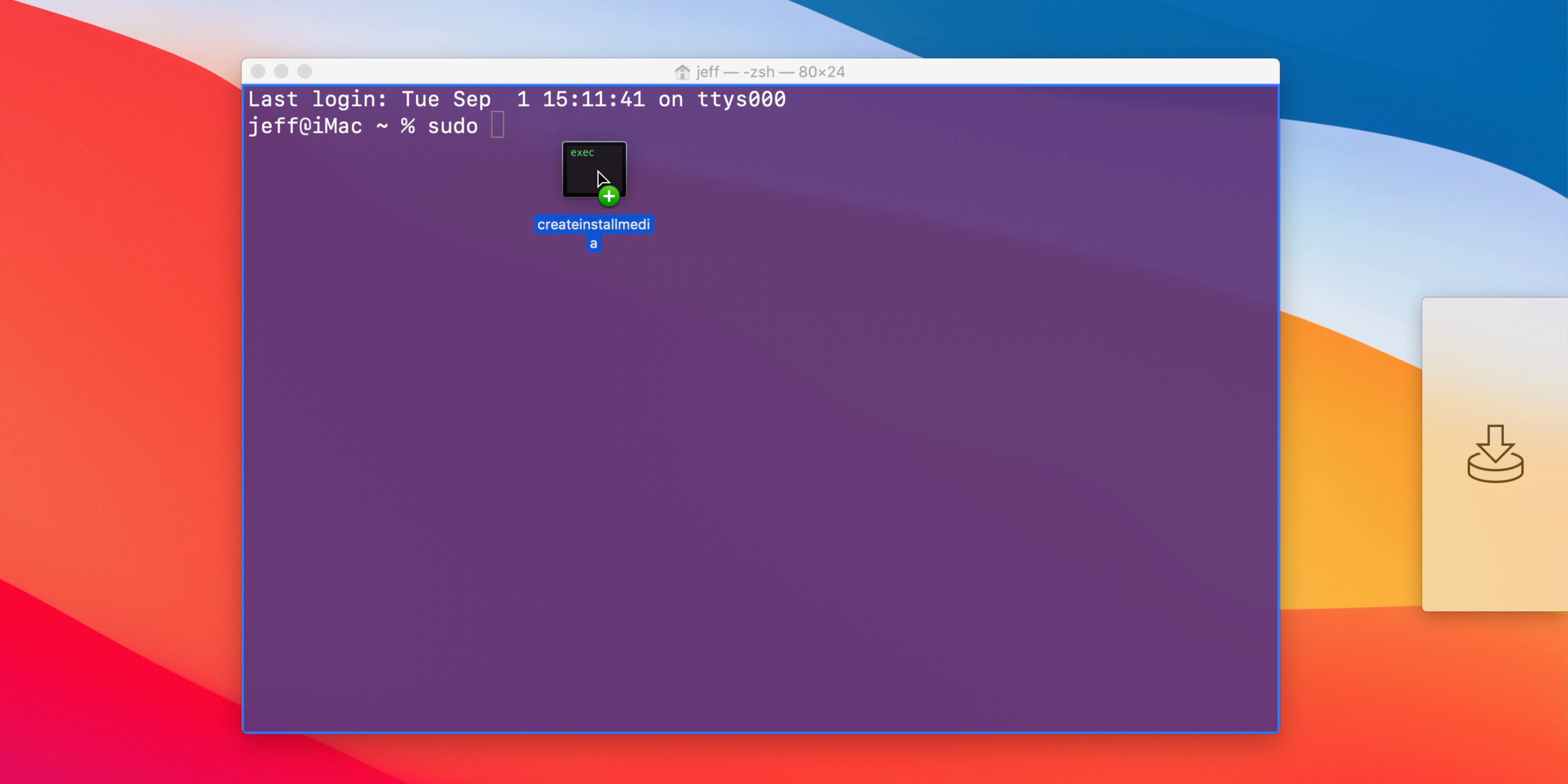

- CREATE BOOTABLE INSTALLER FOR MAC HOW TO
- CREATE BOOTABLE INSTALLER FOR MAC MAC OS
- CREATE BOOTABLE INSTALLER FOR MAC INSTALL
- CREATE BOOTABLE INSTALLER FOR MAC WINDOWS 10
Mount the ESXi Installation ISO and copy all the contents from the ISO to the USB flash drive.

Unmount the USB Drive, Note: This is not the same as Eject. diskutil eraseDisk MS-DOS "ESXI" MBR disk# Simply replace the Terminal command with the one from the preceding article by copying it into the Terminal.
CREATE BOOTABLE INSTALLER FOR MAC HOW TO
Second, see this How To outline for creating a bootable El Capitan installer. First, review this introductory article: Create a bootable installer for macOS. I need the Live USB to see whats wrong with the Mac, but conventional methods wont work. In front of me, I have a Windows laptop, and a dropped Mac Book Pro that wont properly boot. Don’t forget to use the disk# number obtained in step 2. Bootable USB Installers for OS X Mavericks, Yosemite, El Capitan, and Sierra. How can I make a Linux Live USB on Windows, that I can use on a Mac. Now we need to format the drive with filesystem FAT32 and partition map MBR using the following command. It's easier than you think, thanks to the built-in Boot Camp Assistant from Apple.
CREATE BOOTABLE INSTALLER FOR MAC WINDOWS 10
You should now see another disk show up, in my case disk3. We'll show you to create a bootable USB flash drive with the Windows 10 installer from a Mac. Insert the USB Flash then run the diskutil list command again. If you’ve downloaded Windows 10 ISO image, here is how you can create a bootable Windows installer USB on Mac using UNetbootin.
CREATE BOOTABLE INSTALLER FOR MAC MAC OS
UNetbootin is a free, open source utility that allows you to create bootable USB drives on Windows, Linux, and Mac OS X. Open Terminal and list the mounted disks using the diskutil list command. Method 1: Create Windows 10 Bootable USB on Mac Using UNetbottin.
CREATE BOOTABLE INSTALLER FOR MAC INSTALL
Choose the language and click on Install MacOS. From the boot menu, select the USB drive and hit enter. It can be different depending on your computer’s model. Start the computer and press the boot key like F10, F12, etc. Sudo /Applications/Install\ OS\ X\ Yosemite.app/Contents/Resources/createinstallmedia -volume /Volumes/FlashInstaller -applicationpath /Applications/Install\ OS\ X\ Yosemite.app -nointeraction Connect it to the computer on which you want to install MacOS. Sudo /Applications/Install\ OS\ X\ El\ Capitan.app/Contents/Resources/createinstallmedia -volume /Volumes/FlashInstaller -applicationpath /Applications/Install\ OS\ X\ El\ Capitan.app Sudo /Applications/Install\ macOS\ High\ Sierra.app/Contents/Resources/createinstallmedia -volume /Volumes/FlashInstaller Sudo /Applications/Install\ macOS\ Mojave.app/Contents/Resources/createinstallmedia -volume /Volumes/FlashInstaller Sudo /Applications/Install\ macOS\ Catalina.app/Contents/Resources/createinstallmedia -volume /Volumes/FlashInstaller Note that they use the example name FlashInstaller for our USB drive, so if you named your drive something else, use that name. In the Terminal window that opens, enter one of the following commands, depending on which OS X or macOS installer you're working with. Alternatively, enter Terminal into Spotlight Search to quickly start up the utility.


 0 kommentar(er)
0 kommentar(er)
